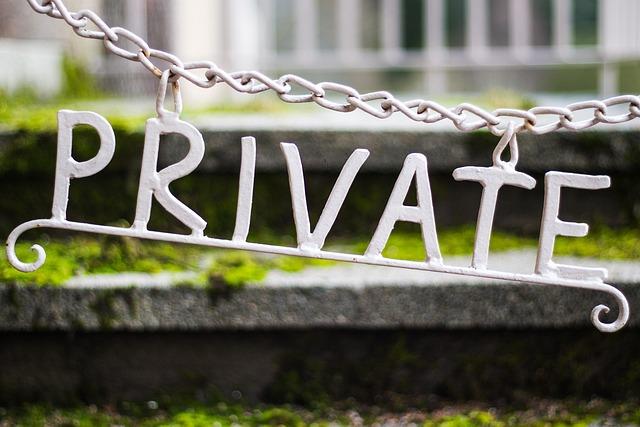In recent years, the proliferation of private security services has become a ubiquitous presence in neighborhoods across the globe. These companies promise peace of mind and heightened safety, offering everything from surveillance systems to armed patrols. However, an analytical examination reveals a more complex narrative—one where the omnipresence of private security may inadvertently foster a climate of fear rather than alleviate it. This article delves into the psychological and social implications of relying on private security services, exploring how their presence can subtly shift perceptions of safety, alter community dynamics, and instill an unwarranted sense of danger within families. By critically evaluating the underlying factors and motivations driving the demand for these services, we aim to shed light on whether they truly enhance security or simply perpetuate a cycle of fear and dependency.
Impact of Private Security on Community Perception of Safety
In communities where private security services are prevalent, residents often experience a shift in their perception of safety. While the presence of uniformed guards and patrol vehicles may initially offer reassurance, it can also cultivate an environment where fear becomes more pronounced. This heightened sense of alertness can lead to an exaggerated perception of threats, even when crime rates are statistically low. Families may start questioning the safety of their neighborhood, influenced by the visible reminders of security measures. This phenomenon, often referred to as the “fear of crime paradox,” suggests that increased security can paradoxically make people feel less secure.
- Increased Surveillance: The constant presence of security personnel can lead to a feeling of being watched, which may erode the community’s sense of privacy.
- Dependence on Security: Over time, residents might become reliant on security services, potentially undermining their own ability to recognize and respond to genuine threats.
- Social Division: The deployment of private security can sometimes create a divide between those who can afford these services and those who cannot, fostering a sense of inequality within the community.
Ultimately, while private security is intended to enhance safety, it is crucial to balance these measures with efforts to maintain community trust and cohesion. The key lies in transparent communication and ensuring that security measures are proportionate to actual risks, thereby preventing unnecessary anxiety and fear among families.

Psychological Effects of Overreliance on Private Security Measures
As families increasingly turn to private security services to safeguard their homes, there emerges a subtle yet profound psychological impact that often goes unnoticed. The pervasive presence of security personnel and systems can inadvertently cultivate a sense of heightened anxiety rather than security. This overreliance can lead to a distorted perception of reality, where every unfamiliar noise or passerby is viewed with suspicion. Constant vigilance, while intended to protect, can instead foster a climate of fear, leading family members to feel perpetually unsafe even in their own homes.
- Heightened Anxiety: Families may experience increased stress due to the belief that danger is omnipresent.
- Trust Erosion: Over time, reliance on security measures can lead to a diminished trust in neighbors and the community.
- Reduced Autonomy: The dependency on external security can make families feel less capable of managing their own safety.
These psychological effects underscore the importance of balancing security measures with efforts to maintain a sense of community and personal empowerment. By addressing these concerns, families can mitigate the unintended consequences of their security choices.
Analyzing the Cost-Benefit Dynamics of Private Security in Residential Areas
While private security services promise a heightened sense of safety, the associated costs often outweigh the benefits, potentially instilling an unwarranted sense of fear among residents. The financial implications are significant, with monthly fees, installation costs for surveillance equipment, and potential neighborhood assessments. These expenditures can strain family budgets, creating economic pressure rather than peace of mind. Moreover, the presence of security personnel can sometimes give rise to a climate of suspicion, leading residents to perceive their neighborhoods as more dangerous than they are, without substantial evidence of increased crime rates.
- Psychological Impact: The constant visibility of security measures may lead families to believe they are in imminent danger, even in relatively safe communities.
- Community Relations: The reliance on private security can erode community trust, as neighbors may start to rely more on external protection than on fostering mutual vigilance and cooperation.
- Economic Disparity: In areas where not all residents can afford private security, a divide may form, increasing tension and possibly leading to unequal perceptions of safety within the same community.
Ultimately, while private security services can offer some level of deterrence, they may inadvertently contribute to a culture of fear and financial burden, which can disrupt the harmony and cohesion of residential areas.

Strategic Alternatives to Mitigate Fear Without Compromising Safety
While the presence of private security services can sometimes amplify anxiety, there are alternative strategies that prioritize both peace of mind and safety. Community engagement plays a pivotal role in this balance. By fostering a sense of collective responsibility and vigilance among neighbors, communities can create an environment of mutual support without resorting to intimidating security measures. Encouraging residents to participate in neighborhood watch programs or organizing regular community meetings can significantly reduce feelings of fear while maintaining a strong safety network.
Another effective approach involves leveraging technology-driven solutions that are less intrusive yet equally effective. Consider implementing smart home devices such as motion-sensor lights, doorbell cameras, and home automation systems that can be monitored remotely. These tools empower families to take control of their own security without feeling overwhelmed by the presence of external security personnel. Additionally, promoting educational workshops on personal safety and cybersecurity can equip families with the knowledge to protect themselves, enhancing their confidence without instilling unnecessary fear.



